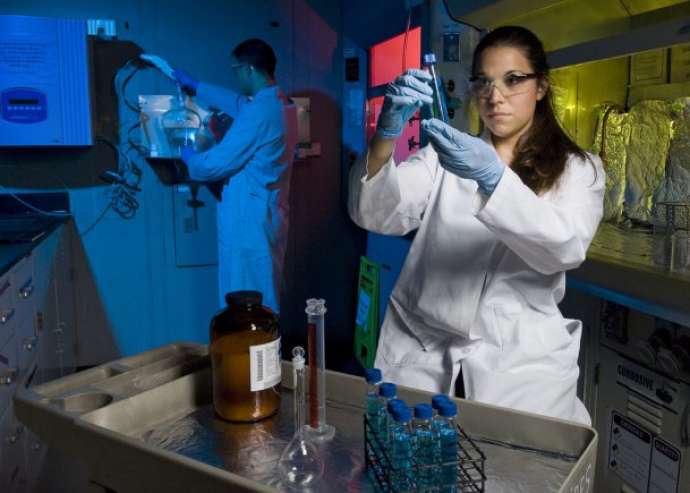STA, 6 December 2018 - A group of acclaimed scientists and researchers have addressed a letter to Prime Minister Marjan Šarec urging him to increase research funding in 2019 and laying out several issues. Among other things, they expressed concern that only 2% of Slovenian grant bids to the European Research Council (ERC) are successful, while the EU average is 12%.
So far only seven Slovenian research labs have been successful in acquiring grants from the ERC, notes the letter, signed by nine successful Slovenian researchers working either at home or abroad.
Science and research funds have remained virtually level in Slovenia since 2009. Many of the EU member states that joined the bloc alongside Slovenia in 2004, or later, have taken a much more ambitious path, the letter notes.
"The Czech Republic established several centres of excellence, allocating EUR 200m for each of them. Poland is building a synchrotron and a centre for cryo-electron microscopy."
Slovenia fares poorly even compared to the Balkans: Croatia has made it a priority to invest EUR 100m in the Ruđer Bošković science institute, while Serbia is investing EUR 40m in a nanoparticles centre, the letter says.
It adds that Romania and Hungary have each invested about EUR 100m in the past four years, while more developed countries are investing much more.
Austria, for example, launched in 2009 the Institute of Science and Technology, which in 2016 alone acquired more ERC grants than all Slovenian scientists in a decade, the letter illustrates.
The scientists also point to a fiscal policy that "punishes researchers working abroad and forces them to sever all ties with the homeland."
Slovenia unable to attract foreigner talent
What is more, the funds available in Slovenia do not attract top foreign researchers. "Salaries of Slovenian researchers are not even attractive to those from Eastern Europe and Asia, let alone from more developed parts of the world," says the letter, adding that Slovenia has a serious brain drain problem.
Slovenia will only be able to raise a new generations of scientists if it encourages post-doctoral students to join the best research teams around the world and then gets them to return back home by providing funding that allows them to start new research teams.
Moreover, the state should rethink the way science and research funds are distributed. It should move away from giving a little to everybody and make sure that the best and the most promising teams get the funds they need.
"A clear support for science excellence could reverse the trend and start seeing results in five to ten years," the letter stresses.
"We urge you to increase science funding already in 2019, at the very least in line with promises given in the coalition agreement: to increase science funding from 0.38% of GDP to 1% of GDP by 2022."






